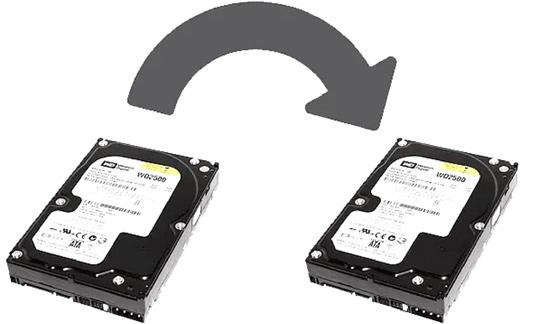You are here
Your data is too precious to be left in your hands
By Jean-Claude Elias - Jun 19,2014 - Last updated at Jun 19,2014
Trust the cloud with your data. It is probably safer there than in your own hands.
No matter how important to you your digital contents are, in the end you have to store them on some earthly physical media; there’s no other way. The problem is that after 35 years of personal computing they still haven’t found the perfect storage media, the one that would never crash or lose your data. Perhaps the problem isn’t just in the storage media, per se, as much as it is in the methods used to save and to backup data.
From magnetic tape to USB flash drive and everything in between, including optical disks and the now defunct laughable floppy disk and Zip100 disk, each media exhibits its intrinsic weak points. It’s either too slow, or not reliable enough, or too expensive, or too bulky, or too cumbersome to handle…
On top of the elusive perfect storage media issue, taking the time and making the effort to backup your data, in most instances, has proven to be a failure amongst private users. You know you have to do it frequently, you are constantly reminded that you must absolutely backup your digital contents, and on multiple media what’s more, so as to cover the risk of seeing one of them fail when you need most to restore data, you still can’t put yourself on following a straight discipline to perform the required backup as frequently as you should.
It’s like not having enough will to lower your high bad cholesterol rate without statin medication, or to stop smoking for example. Though you realise you must and know how to, you just can’t set your mind on doing it. It’s also a bit like doomed New Year’s resolutions: quick to take, easy to forget.
So with time, given that that there is no perfect storage media and the lack of discipline of the common user, new solutions have emerged. Of course we’re talking “cloud” here — yes, again.
Whether we like it or not, the trend towards doing more in the cloud continues unabated. As an example only, one of most obvious pushes these days comes from Microsoft with the company’s cloud-based Azure servers services. Imagine being given all the functionalities of a powerful server computer but without the hassle of buying the hardware or paying for the software licences, dedicating area for it and most importantly without having to pay for the expensive technical support that is always associated with it. This is what Azure offers, if you are willing to go with it and to trust it — and of course if your Internet connection is very fast and reliable.
Back to simple matters (Azure isn’t one actually): Taking the bold decision to backup your data in the cloud is the first step towards the right thing to do, towards the ultimate solution. However, it is just not enough for it will only overcome the less-than-perfect storage media limitation, with the cloud taking care of keeping multiple copies of your precious digital contents. By backing up your data in the cloud you still have to remember to perform the operation yourself. Even you set up some automated tasks that will do the backup say every day or every week, you are still taking the risk of seeing the task fail somehow, some day.
The second and most important step is to store your digital contents in the cloud in the first place, exclusively, to consider it your main storage space, not just a set of extra backup. The IT people in the cloud will take care of everything for you, including doing the backup operation of course, but also making sure your data is safe, protected from viruses, and so forth. You are relieved this way from all the tedious tasks, from having to remember to do a backup and from errors that will certainly happen one day if you keep on doing it on your own.
By considering the cloud as your main data storage you make the smart move of letting IT professionals take care of your data and of its backup. They are not only trained to do it right they also have the time for that — it’s their job after all — and they are well focused on the task. By relieving you of what you have always hated to do, they let you focus on what matters to you: using and enjoying your digital contents.
As for those still reluctant to store their information in the cloud, perhaps they should be reminded that it is not necessarily less secure than their laptop at home, that in the overwhelming number of cases no one is really interested in their personal files and that they can still protect most types of files with strong passwords if they estimate that some files should be protected from prying eyes.
Related Articles
In the realm of information technology not every interesting topic is about the Internet, smartphones, cloud storage, social networking, fib
Have you cloned your computer’s hard disk yet?
In the past month 15 people I know have had their e-mail box hacked or its password stolen and changed. Most have irreversibly lost not only the messages and the contents but worse, their contact list. Some have cried –– literally, real tears –– over it, while others have cursed technology and all that goes with it.















